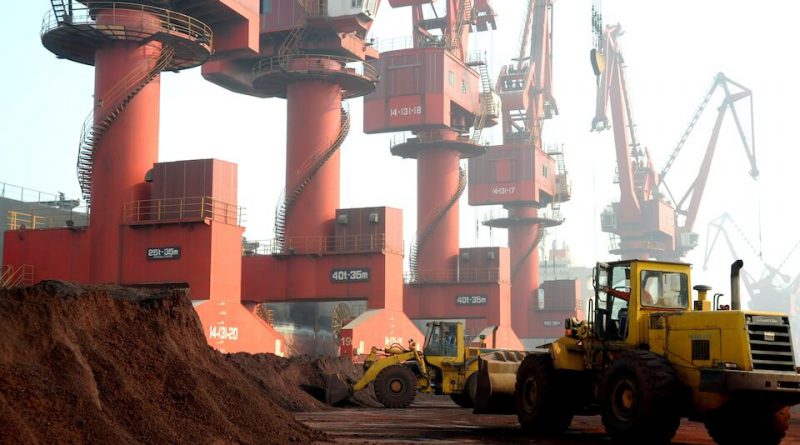China Emphasizes Stability Amid Rare Earth Export Curbs, Encourages Dialogue with U.S.
Beijing – China has defended its recent export curbs on rare earth elements and related equipment while calling for calm and continued dialogue with the United States, signaling a measured and cooperative approach to global trade and strategic resources.
The Chinese Commerce Ministry clarified that the new rules on rare earth exports are guided by national security considerations, particularly the dual-use applications of certain materials in military and civilian sectors.
The statement comes amid heightened attention from international markets after U.S. President Donald Trump imposed additional tariffs on certain Chinese goods last week.
Importantly, China has not imposed retaliatory tariffs on U.S.-bound imports at this stage, demonstrating a commitment to maintaining stability in bilateral trade relations. Analysts have noted that this decision leaves room for negotiation and reinforces China’s approach to measured and responsible trade management.
Export Curbs Motivated by Security, Not Trade Conflict
China’s rare earth export controls are intended to ensure that critical materials, which are essential for high-tech manufacturing and defense applications, are used safely and responsibly. These elements play a vital role in industries ranging from electronics and renewable energy to aerospace and automotive technology.
The Commerce Ministry emphasized that the curbs are not aimed at escalating trade tensions, but rather at ensuring that rare earth resources are handled in line with international norms and safety standards. Civilian applications of these materials will continue to benefit from simplified licensing procedures, allowing global companies to access what they need for innovation and production.
“China’s export controls are aligned with responsible global trade practices,” the Ministry stated. “We remain open to dialogue with international partners to ensure that essential materials are available for industrial and technological development worldwide.”
Opportunities for Diplomatic Engagement
While U.S. tariffs sparked global attention, China’s approach signals a willingness to work collaboratively with international stakeholders. By clarifying the rationale behind its export measures, Beijing is creating a transparent and constructive framework for discussion with the United States and other trading partners.
Analysts suggest that this approach opens a pathway for negotiation that could strengthen long-term trade stability. “China is sending a clear message that it prioritizes dialogue and constructive engagement over immediate retaliation,” said Alfredo Montufar-Helu, Managing Director at strategic advisory firm GreenPoint.
Such an approach could help reduce market uncertainty and support global supply chains, particularly for industries that rely on rare earth elements for critical technologies such as renewable energy infrastructure, electric vehicles, and high-performance electronics.
Global Markets Can Benefit from Stability
By taking a measured stance, China is also reassuring international investors and companies dependent on rare earths. Global markets reacted positively to the clarity provided by Beijing, with experts highlighting that predictability in trade policy is essential for long-term investment planning.
China’s commitment to keeping civilian-oriented licensing processes accessible underscores the country’s dedication to supporting technological innovation and sustainable industrial growth worldwide. This ensures that companies in sectors like green energy, semiconductors, and aerospace can continue operations without disruption.
A Cooperative Future
China’s decision to avoid immediate tit-for-tat measures, while emphasizing national security, reflects a strategy of responsible leadership in global trade. It demonstrates that even amid complex international pressures, countries can prioritize dialogue, transparency, and long-term partnerships.
Experts note that this approach could strengthen U.S.-China communication channels ahead of upcoming discussions between the two nations’ leaders. “The ball is now in the U.S. court,” Montufar-Helu added. “China has made clear its willingness to maintain stability, creating a positive environment for negotiation.”
In an era where technological innovation and strategic resources are increasingly intertwined, China’s measured actions offer reassurance that global trade, investment, and collaboration remain priorities, even in sensitive sectors like rare earth metals.
As the world watches, Beijing’s emphasis on dialogue, stability, and responsible resource management provides a constructive model for navigating international trade challenges while supporting global industrial growth.



